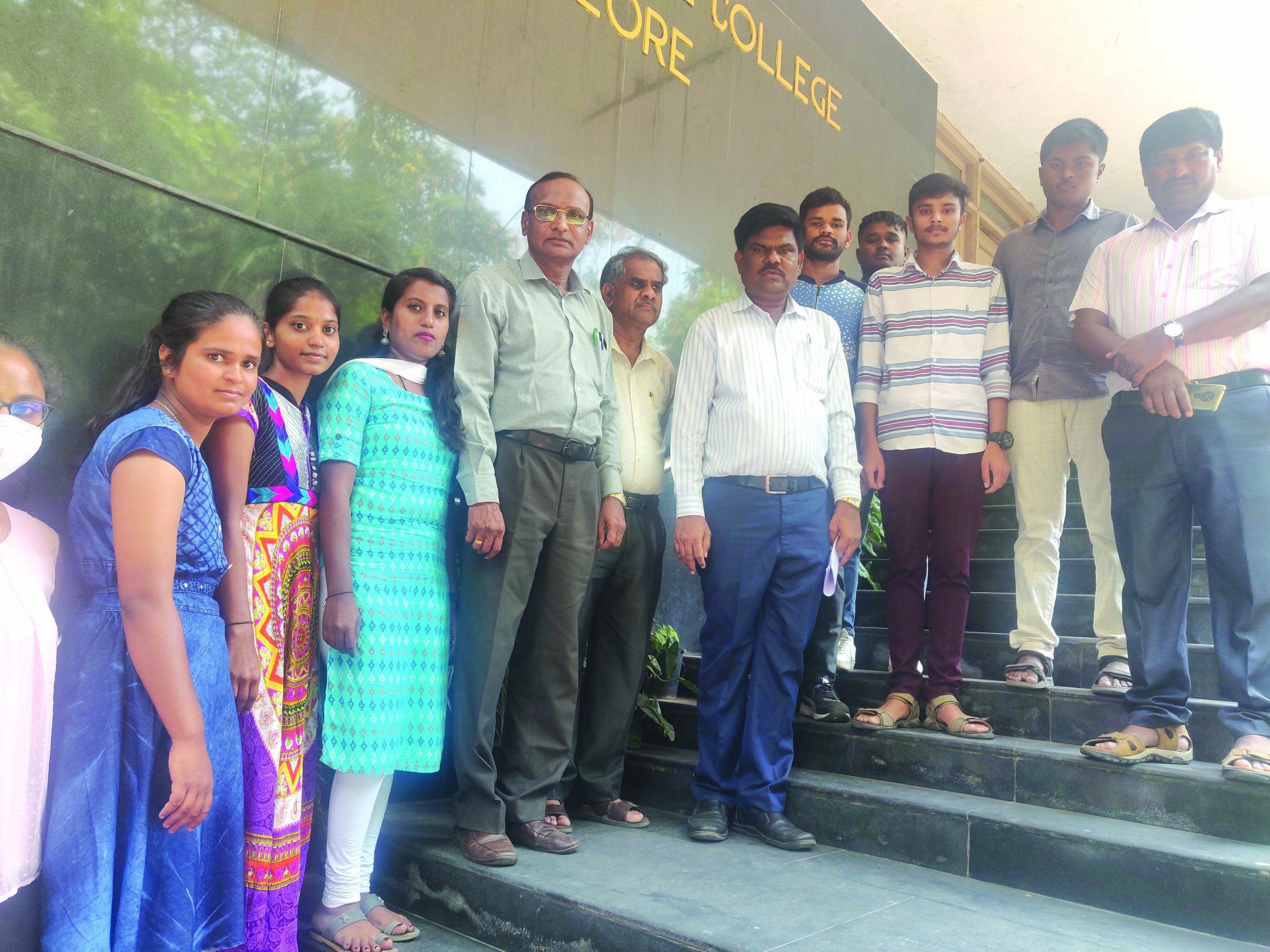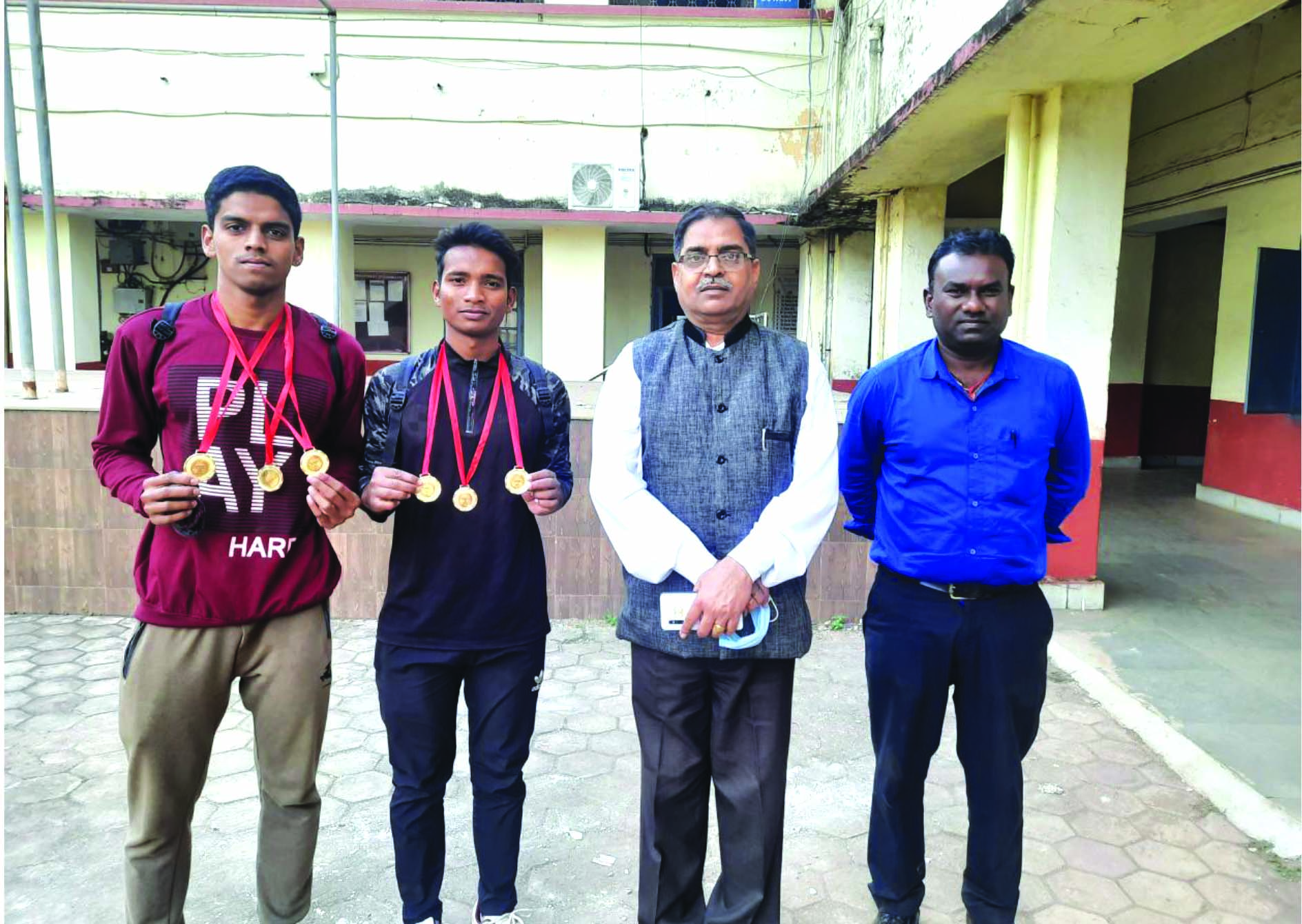There’s no change in the top echelons of India’s best autonomous ASC colleges promoted by state governments. Although they are sufficiently qualified to be awarded autonomous status, they are totally ignored by media

GSC, Bengaluru’s Chandragi (centre left)
A major reform proposed in the National Education Policy (NEP) 2020 is a mandate to India’s 45,000 undergraduate colleges to upgrade into multi-disciplinary degree-awarding autonomous higher education institutions, and phasing out of the university-college affiliation system by 2035. This is a tall order. To date, a mere 871 undergrad colleges countrywide have been granted autonomous status i.e, academic and operational autonomy by the Delhi-based University Grants Commission (UGC, estb.1956). The remaining 44,129 are non-autonomous colleges tied to the apron strings of their affiliating universities.
UGC sets stringent conditions precedent — uniformly applicable to private and government colleges — for awarding much-prized autonomous status. Applicant colleges must be of more than ten years vintage and “accredited by either NAAC (National Assessment and Accreditation Council) with minimum ‘A’ Grade or by NBA (National Board of Accreditation of the All India Council for Technical Education) for at least three programme (s) or be awarded autonomy by a corresponding accreditation grade/score from a UGC empanelled accreditation agency”.
After conferment of autonomous status, colleges are permitted to review existing courses/programmes and restructure, redesign and prescribe their own courses/programmes of study and syllabi; introduce new courses/ programmes; evolve independent performance evaluation systems, conduct examinations and notify results. They are also allowed to issue mark sheets, migration and other certificates. Although their degrees are awarded by the affiliating university, the name of the college is permitted to be inscribed on the degree certificate. Of the 871 colleges conferred autonomous status by UGC (as on February 22, 2022), 689 are privately promoted and 182 established by the state governments.
[userpro_private restrict_to_roles=administrator,customer]
Against this backdrop of wide and confusing diversity in India’s collegiate education system, to provide level playing fields and avoid apples and oranges type comparisons, in 2020, your editors divided the broad category of Arts, Science and Commerce (ASC) colleges into three sub-categories: private autonomous, government autonomous (as classified by UGC) and the Top 100 highly-reputed non-autonomous colleges, and ranked them in separate league tables. This year too, in the EducationWorld Top 500 Arts, Science & Commerce Colleges Rankings 2022-23, ASC colleges are ranked in separate and distinct categories.
To compile the 2022-23 EW league tables of India’s best private and government autonomous (as well as Top 100 non-autonomous) colleges, field representatives of the well-known Delhi-based market research and opinion polls company Centre for Forecasting & Research Pvt. Ltd (C fore) interviewed 4,067 sample respondents comprising 1,789 college/university faculty and 2,278 final year college students. They persuaded the respondents to rate sufficiently well-known colleges on six parameters of tertiary education excellence, viz, competence of faculty, faculty welfare and development, curriculum and pedagogy (including digital readiness), industry placement record, infrastructure, and quality of leadership/governance. Low-profile institutions rated by less than 25 respondents are not ranked.
Unsurprisingly, there’s no change in the top echelons of EducationWorld’s best government autonomous colleges which are totally ignored by media. This year’s sample respondents have retained Government Science College, Nrupathunga Road, Bengaluru as the country’s #1 government autonomous undergrad college followed by the Maharaja’s College, Ernakulam, Kochi, at #2.

Maharani’s Science College for Women, Mysuru’s Balakrishna
However further down the top table, there’s been an upheaval in the pecking order. Yuvaraja’s College, Mysuru has been catapulted from #20 in 2021-22 to #3 jointly with Osmania University College for Women, Hyderabad (#33 in 2021- 22). Similarly, Presidency College, Chennai has been promoted to #4 from #14 last year. The elevation of these hitherto low-ranked colleges into the Top 5 has pushed Government Degree College for Women, Begumpet, Hyderabad to #5 (#3 in 2021-22).
U.V. Chandaragi, principal of the low-profile Government Science College, Bengaluru (GSCB, estb.1921), is delighted that the college, granted autonomous status in 2016, has retained its #1 national rank with top scores on all six parameters of higher education excellence.
“We are very pleased to be ranked #1 for the second consecutive year. This is the outcome of the extraordinary efforts put in by our faculty and students to maintain learning continuity during the pandemic. We quickly switched to online classes while also making recorded lessons available for students with internet connectivity problems. Whenever government allowed reopening of education institutions, we called in students for 15 days of intensive offline practical learning. I attribute GSCB’s high rank to our high-quality faculty, most of whom are gold medalists and sign up for constant up-skilling training programmes organised by the UGC and state universities. Over the years, we have also initiated several industry collaborations and partnerships, ensuring that graduates are industry-ready. This industry connect has resulted in GSCB recording best industry placements among government colleges year after year,” says Chandaragi, a science postgraduate of Karnatak University, Dharwad, appointed principal of the college in 2021. Currently, GSCB has an enrolment of 2,400 students instructed by 103 faculty.
Beyond the Top 5 too, there’s a major rearrangement of rankings. Maharani’s Science College for Women, Mysuru has risen spectacularly in public esteem to #6 (#26 in 2021-22) while Sarojini Naidu Government Girls P.G. College, Bhopal at #7 (4), Government Holkar (Model Autonomous) Science College, Indore at #8 (5) and Government Arts College, Hassan at #9 (7) have lost ground. The Government Bilasa Girls PG Autonomous College, Bilaspur and Govt. VYT PG Autonomous College, Durg — ranked #15 last year — have debuted in the Top 10 table and are jointly ranked #10.
Comments Prof. Balakrishna M, principal of Maharani’s Science College for Women, Mysuru (estb.1917), which has an enrolment of 4,000 women students and 172 faculty: “We thank your respondents for recognising the legacy and contribution of this 120-year-old college founded by the Maharani of Mysuru to provide quality higher education to women. We quietly continue to make every effort to realise her vision of empowering women. Our greatest strength is that we provide holistic education with equal weightage given to academics and extra-curricular activities. Moreover, our faculty is highly qualified and has established excellent industry connect. In terms of range and diversity of study programmes, we are also the best — our 25 academic departments offer the highest number of subject combinations of any government college in Karnataka. Maharani’s is also proud to be one of the first colleges in the state to smoothly implement the NEP 2020.”
Likewise, Dr. R.N. Singh, principal of the Govt. VYT PG Autonomous College, Durg (Chhattisgarh), which has an enrolment of 7,271 students and 119 faculty, is highly satisfied that the college has been promoted to the national Top 10 table. “We are very happy and rejuvenated by our India #10 rank. I attribute this to the extraordinary contribution of our faculty who excel in teaching, research, and execution of all duties to students. During the Covid-19 pandemic we promptly switched from offline to online teaching and created a repository of study materials and laboratory work accessible to every student of the state. Therefore, it’s not surprising that our highest score is on the parameter of faculty competence. We will continue our efforts to provide high-quality education to youth of Madhya Pradesh and have drawn up plans to strengthen research facilities especially in material science, nano-science, drug design, and bioinformatics. We have also established a permanent e-learning centre to provide online/video lectures and enhance industry interface and collaboration,” says Dr. Singh.

Govt. VYT PG Autonomous College, Durg’s Dr. Singh (centre)
Further down the 87-strong league table of India’s top-ranked government autonomous colleges, several institutions have risen in public esteem and improved their ranking. Among them: Government College, Anantapur has risen to #12 (#33 in 2021-22), Government Madhav Science College, Ujjain to #14 (31), P.R. Govt. Degree College (Men), Kakinada to #15 (36), Government College, Solan to #17 (51) and Sree Meenakshi Government Arts College for Women, Madurai to #17 (42).
It’s pertinent to note that only 14 of the country’s 29 states are represented in this year’s EW league table of state government colleges granted autonomous status. The states with the maximum number of government autonomous colleges are: Madhya Pradesh (17), Odisha (13), Karnataka (10) and Andhra Pradesh (10). Surprisingly the populous states of Maharashtra, Gujarat, Bihar and Uttar Pradesh don’t have even one government autonomous college sufficiently well-reputed for inclusion in the EW 2022-23 league of India’s Top 100 government autonomous colleges.
Also Read: UGC to allow 900 autonomous colleges to offer online degrees












Add comment